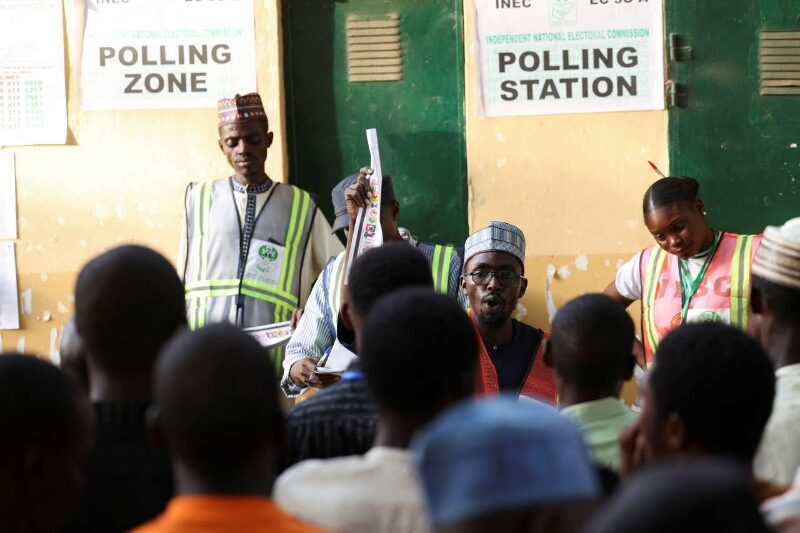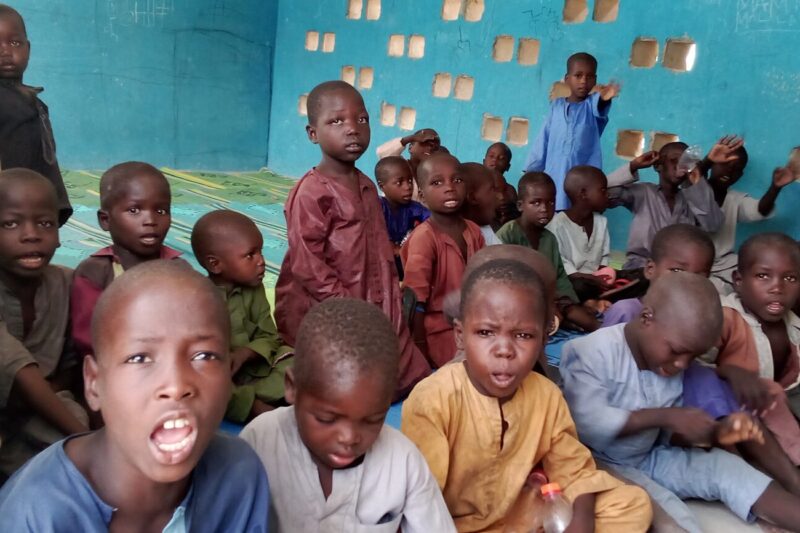The gubernatorial elections in Nigeria have come and gone but not everyone is happy with the results – in the six northeastern states voters and opposition parties alike are calling for new elections to be held.
They claim the elections, which were held on Saturday, March 18, were flawed.
The new governors will take office on May 29 except in Taraba State where Agbu Kefus of the official opposition, the Peoples Democratic Party (PDP), will be sworn in and take office immediately because the tenure of governor Darius Ishaku is up. He has been in office since May 2015.
The ruling party, the All Progressives Congress (APC), were victorious in three of the six states, in Borno, Yobe and Gombe; in Adamawa, Bauchi and Taraba the PDP candidates took the governorships.
However, the Independent National Electoral Commission (INEC) declared the result in Adamawa State inconclusive and has called for new elections at certain polling units. The hotly contested race was between Ahmadu Fintiri of the PDP, who was said to have won more votes against the only woman seeking governorship, Aisha Dahiru of the APC.
In Borno State, Babagana Umara Zulum was re-elected for a second term, as was Mai Mala Buni in Yobe State and Muhammad Inuwa Yahaya in Gombe State.
In Bauchi State, Bala Mohammed was re-elected for a second term and Kefus won in Taraba.
The new and re-elected governors face a number of challenges when they take office. The northeastern states have been plagued by the insurgency since 2009, particularly Borno State which has been the epicentre of the conflict.
Other issues that need addressing include poor education, a lack of health facilities and the large number of people who are unemployed in the state, especially the youths who represent the majority of the country’s population.
The United Nations Children’s Fund (UNICEF) has reported that at least 2.8 children are in need of education in Borno, Adamawa and Yobe.
It is estimated that at least 35,000 people were killed and about three million people displaced in the insurgency in the northeast, where insecurity is still a major concern.
In Borno State, RNI head of news Mamman Mahmood said insecurity is still an issue. There are still frequent attacks by insurgents in villages and towns, as well as ambushes and killings on highways and roads throughout the state.
Human capital development is another challenge. Many people do not have jobs, there is a huge population of internally displaced persons (IDPs), poor people do not have enough food, clean drinking water and many lack even the basic amenities.
It is going to take much work by Zulum’s government to improve the livelihoods of the people in the state, many of whom are in desperate need of humanitarian aid.
Rebuilding communities that were destroyed by the Jamā’at Ahl as-Sunnah lid-Da’way Wa’l-Jihād (JAS), better known as Boko Haram, is going to be a huge task. Many IDPs have been resettled in their former hometowns and communities. But there are still many more who are living in IDP camps or with host communities in Maiduguri and other areas and who are yet to be resettled in their local government areas.
RNI reporter Alhaji Sheriff Bura said the elections in Yobe State had been peaceful and the sitting governor, Buni, was re-elected.
He, too, has some challenges to contend with. Yobe State has the second-largest community of IDPs, most of whom have lost all hope of living a decent life. Their welfare is a major concern.
Journalist Murtala Yahaya said the elections were conducted successfully in Bauchi State, where there was a large turnout of voters.
The result is in line with what the majority of the citizens expected and they have accepted the outcome, he said.
However, governor Mohammed will still have his hands full. A major challenge he faces is the non-payment civil servants’ salaries.
Another issue is the poor education system which has collapsed over the years. Something needs to be done urgently before it deteriorates further.
Kefus in Taraba State will have to deal with disunity among citizens, mostly caused by religious beliefs.
RNI reporter Ali Muhammad Umar said Islams and Christians had vied to get the candidate of their choice elected.
Religious beliefs are contributing to grave disunity in communities and uniting the citizens might end up being a difficult problem to sort out.
In Gombe State, where Yahaya was re-elected, the elections ran smoothly and peacefully, said journalist Mohammed Auwal.
Challenges in the state include low revenue generation, poor electricity supply and unemployment.
The poor electricity supply, particularly, has negatively affected businesses and the living conditions of citizens.
In Adamawa State, where the election result was declared inconclusive, there has been much tension among citizens, many of whom were confident that the only woman running for the governorship, Dahiru, would be victorious.
RNI reporter Umar Bukar Gaji said many women voters, particularly, cast their votes for her and she has a huge following.
INEC has called for new elections at certain polling units where voting was disrupted. It has not set a date yet.
AISHA SD JAMAL








